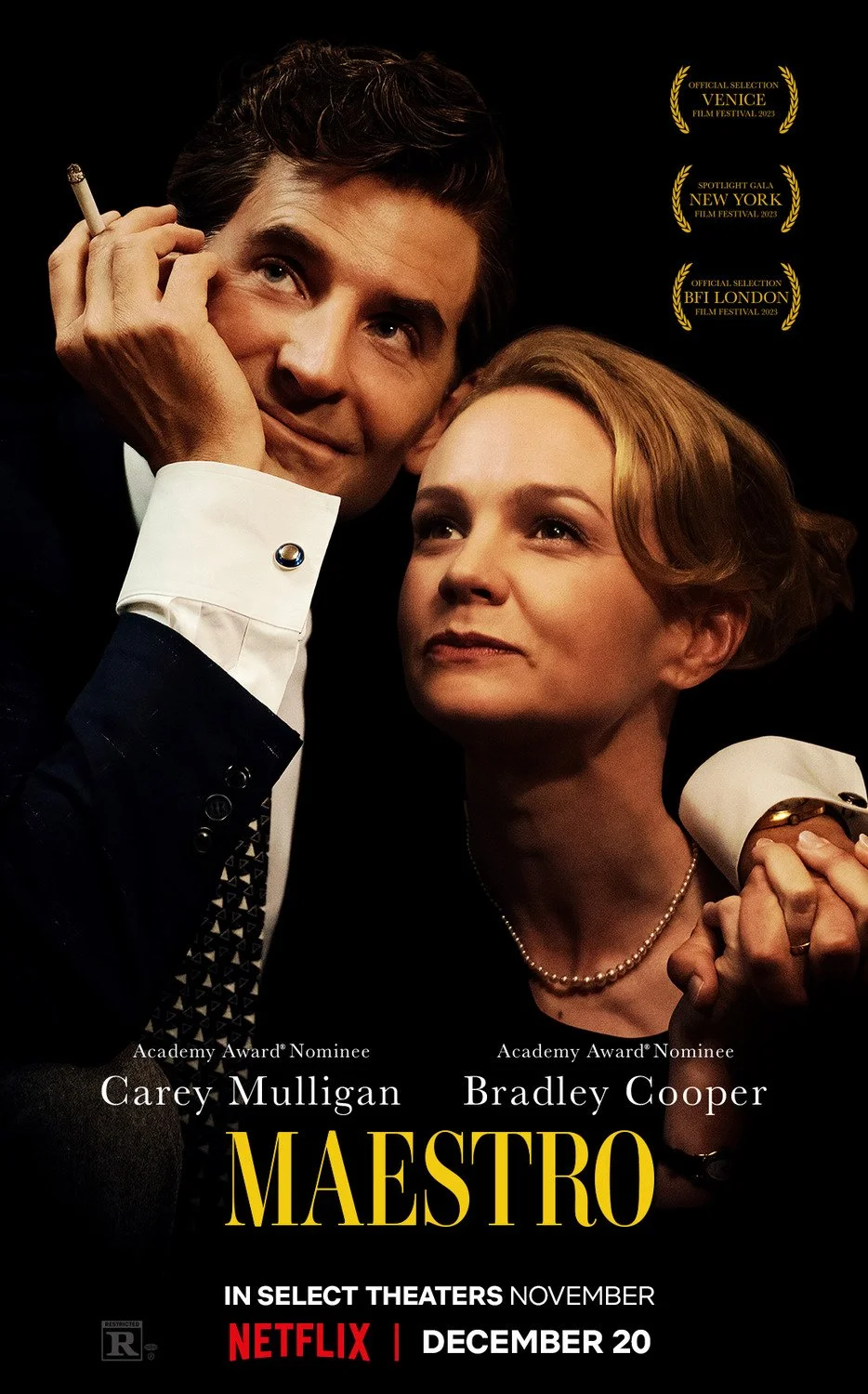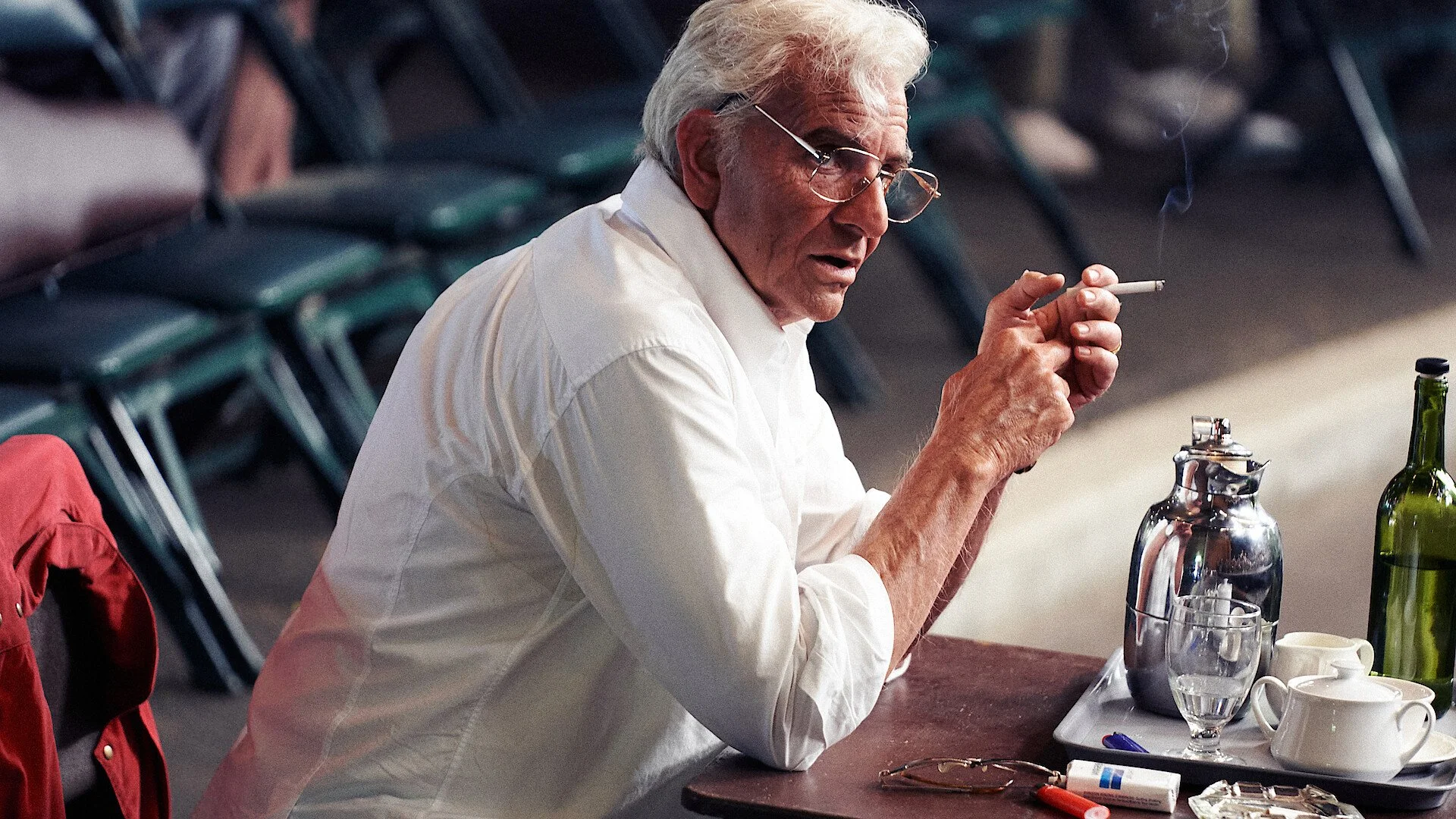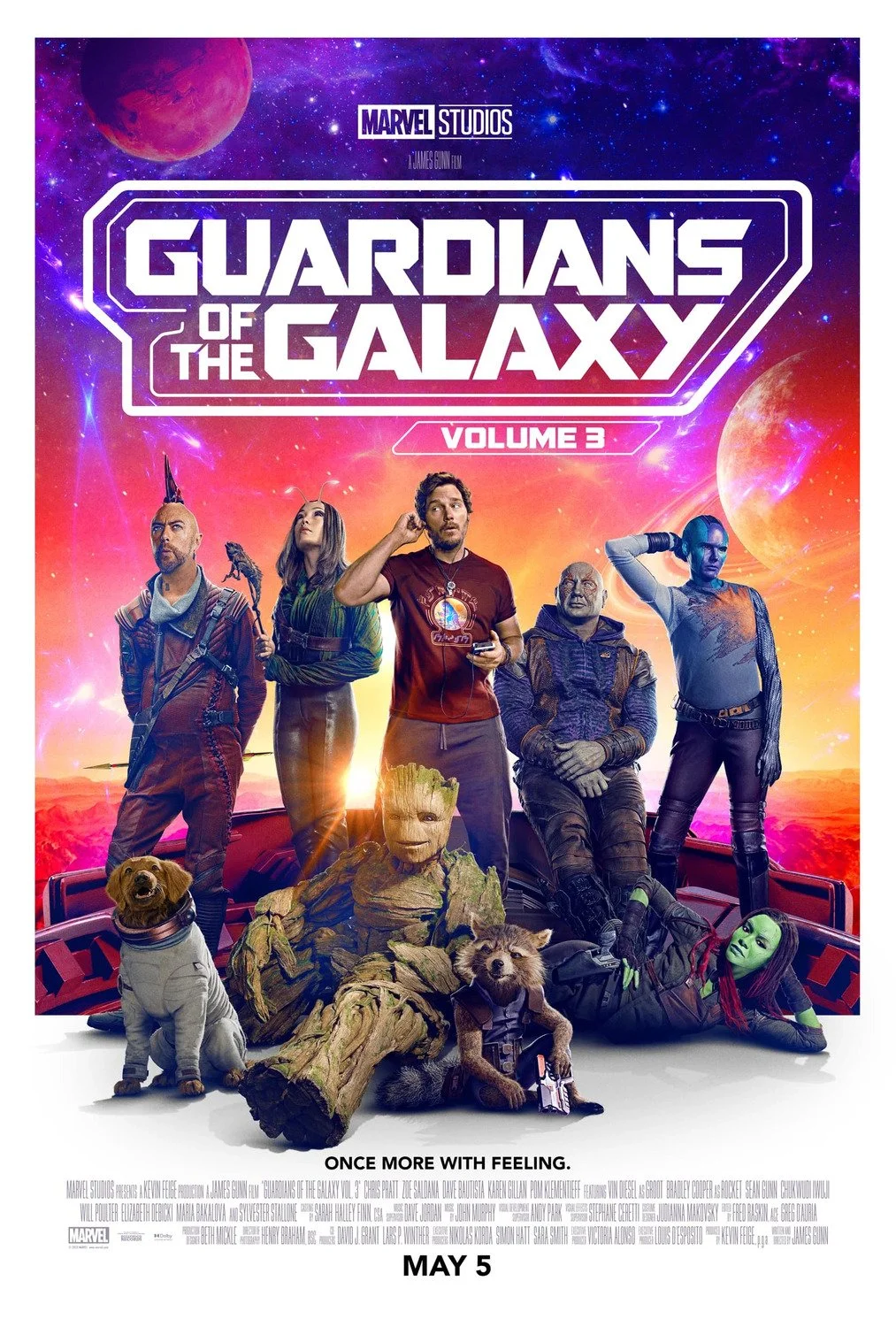Movie Review : Maestro (2023)
Those who’ve known me on a more personal level through social media and whatnot might know that I’ve been in a relationship for seventeen years and that I'm extremely proud of that. Because movies and popular culture in general can teach you a lot about falling in love, but it rarely tells you anything about staying in love. Movies really suck at telling you what happens after you give the first kiss. Maestro might be a Leonard Bernstein biopic, but it's also a story of what people can mean to one another.
Leonard Bernstein (Bradley Cooper) was an American conductor and composer who broke out into superstardom at twenty-five years old by replacing his boss on short notice and kicking a whole lot of ass. He was in a relationship with a clarinet player named David (Matt Bomer) then, but fell for actress Felicia Monteleagre (the always great Carey Mulligan) at a part and got married to her. They did love each other very much, but Leonard’s sexuality and lifestyle caused… a few problems.
The Eternal Struggle of Sex, Life, Light and Love
I don't think Maestro is going to win any best screenplay award. Not that it's stupid or anything, but it's deceptively simple story of how inner and outer forces in someone's life create struggle and how celebrity only enhances said struggle. It's a movie that shines through its execution rather than the originality of its discourse, but I want to stress out that it's a courageous film nonetheless. Maestro is a celebration of what it means to have someone who will be there for you no matter what happens.
It is Felicia's movie as much as Leonard's.
There are quiet, but powerful scenes in Maestro that explore what it means to love someone in the most unsexy and unromantic ways possible : waiting for that person at home after she spent an evening destroying herself along with people she doesn't really care for, having tough discussions with that person in order to help her realize that she's gone astray, standing up for yourself to make that person understand her desires are not yours, etc. It can get brutal, but you somehow never doubt Lenny and Felicia's love.
Maestro becomes more than the sum of its parts when shit hits the fan and Felicia gets sick in the seventies. Then in his fifties, Leonard rallies around her, realizing the immense luck and privilege it is to have someone to your side that doesn't just want to be a part of your success. It's that kind of little stuff that makes Maestro shine. It doesn't call attention to itself, until reaching the grueling scenes that depict the end of Felicia's life. Maestro glides over many aspects of Leonard Bernstein's life to be about that.
But is it good?
It is good, but it's quiet good. Maestro is also a movie that obviously conceptualized, shot and released for the Academy Awards. It is Bradley Cooper's painfully obvious Oscar movie. It is full of nice, dynamic, but unnecessary flare that kind of clashes with its purpose. I mean the camera transitions that cut from a moment in time to another are fun and illustrate how music could transport Leonard Bernstein, but they do take a lot of real estate in a movie that's all about the nuances and the little things.
Of course, Bradley Cooper and Carey Mulligan are absolutely fantastic. The movie wouldn't have worked out if they weren't. It's too impressionistic. Making the tough part of being in love and married beautiful is extremely difficult business and I wouldn't begrudge the academy if they hand them the Oscar for best performance in a leading role. I would've loved more flashes forward to old Lenny handing out wisdom pearls like candy. It would've made the whole black-and-white schtick more worthwile.
*
I'm going to say something really lurid here: perhaps you shouldn't watch Maestro if you don't a) care about the history of music b) don't want to considerate the dark, tougher side of being in a long term relationship. Fortunately, I'm into both of these things. So, I liked Maestro. It's not going to reinvent cinema and you might forget that it ever existed in one year, but if it reminded you that Leonard Bernstein existed and how he became historically significant, it will have accomplished its purpose.







